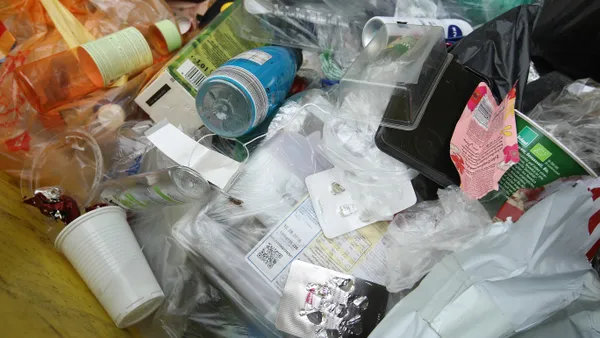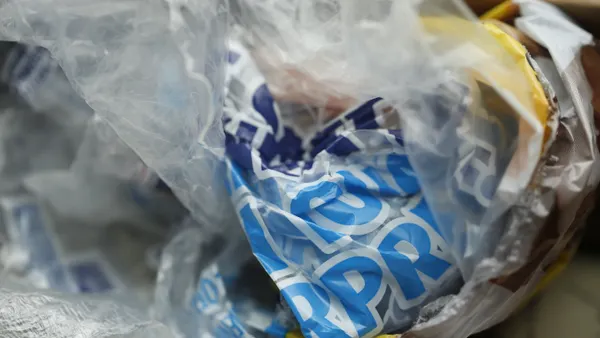Dive Brief:
- The city-run trash service in Denver, CO reports that 16% of waste from homes and small residential buildings is diverted from the landfill through recycling and composting. That's well below other cities in the West, including No. 1 San Francisco at 80%, and the national average of about 35%. Reasons include a voluntary rather than mandatory recycling program, curbside composting offered in only one-third of neighborhoods, and charging $107 a year for composting (trash and recycling are covered by city taxes). Of 60,000 houses on compost pickup routes, 12% participate; 75% of households participate in recycling.
- "There's so much organic material in the waste stream," Charlotte Pitt, manager of the city's solid waste division, told the Post. "It's such a great opportunity. ... (But) we are growing as fast as we can with the financial limitations that we have."
- The city plans new initiatives, including replacing industrial bins with household carts for trash, recycling and composting; and adding two more compost pickup routes by 2018.
Dive Insight:
Denver's program, like many others, faces financial barriers. The composting program has to pay for itself, and expansion requires more trucks, employees, and equipment. Also, the program in 2016 has to start repaying a $2 million loan from the city Department of Environmental Health.
In addition, the City Council last month amended its contract with its recycling processor, which will reduce payments to the city by more than 50% ($800,000 over 17 months) because the recyclables market is down.
Some critics see a lack of vision and leadership, however. The Post notes that the 2010 Solid Waste Master Plan set a goal of reducing the 2004 trash tonnage by 30%, which would translate into a 34% landfill diversion rate; didn't fix a time frame for citywide composting pickup; and projected a cost of $21.7 million to expand recycling and add citywide composting, while costs could vary widely.
Attitudes of state and local leaders make a difference. California began requiring municipalities to cut their landfill shipments in 1989, and a 2011 goal urges the entire state to cut landfill shipments by 75% by 2020. In other states, recycling is mandatory — Vermont mandated recycling on July 1. And other municipalities, like Muskingum County in Ohio, are rethinking their recycling business models in light of the market downturn.
Denver could look to those cities for inspiration to raise that 16% rate.









